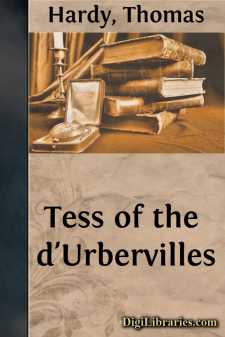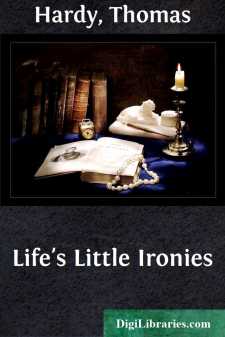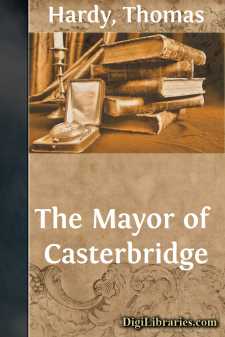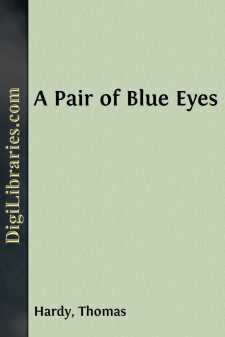Categories
- Antiques & Collectibles 13
- Architecture 36
- Art 48
- Bibles 22
- Biography & Autobiography 813
- Body, Mind & Spirit 142
- Business & Economics 28
- Children's Books 17
- Children's Fiction 14
- Computers 4
- Cooking 94
- Crafts & Hobbies 4
- Drama 346
- Education 46
- Family & Relationships 57
- Fiction 11829
- Games 19
- Gardening 17
- Health & Fitness 34
- History 1377
- House & Home 1
- Humor 147
- Juvenile Fiction 1873
- Juvenile Nonfiction 202
- Language Arts & Disciplines 88
- Law 16
- Literary Collections 686
- Literary Criticism 179
- Mathematics 13
- Medical 41
- Music 40
- Nature 179
- Non-Classifiable 1768
- Performing Arts 7
- Periodicals 1453
- Philosophy 64
- Photography 2
- Poetry 896
- Political Science 203
- Psychology 42
- Reference 154
- Religion 513
- Science 126
- Self-Help 84
- Social Science 81
- Sports & Recreation 34
- Study Aids 3
- Technology & Engineering 59
- Transportation 23
- Travel 463
- True Crime 29
Desperate Remedies
by: Thomas Hardy
Description:
Excerpt
1. DECEMBER AND JANUARY, 1835-36
In the long and intricately inwrought chain of circumstance which renders worthy of record some experiences of Cytherea Graye, Edward Springrove, and others, the first event directly influencing the issue was a Christmas visit.
In the above-mentioned year, 1835, Ambrose Graye, a young architect who had just begun the practice of his profession in the midland town of Hocbridge, to the north of Christminster, went to London to spend the Christmas holidays with a friend who lived in Bloomsbury. They had gone up to Cambridge in the same year, and, after graduating together, Huntway, the friend, had taken orders.
Graye was handsome, frank, and gentle. He had a quality of thought which, exercised on homeliness, was humour; on nature, picturesqueness; on abstractions, poetry. Being, as a rule, broadcast, it was all three.
Of the wickedness of the world he was too forgetful. To discover evil in a new friend is to most people only an additional experience: to him it was ever a surprise.
While in London he became acquainted with a retired officer in the Navy named Bradleigh, who, with his wife and their daughter, lived in a street not far from Russell Square. Though they were in no more than comfortable circumstances, the captain's wife came of an ancient family whose genealogical tree was interlaced with some of the most illustrious and well-known in the kingdom.
The young lady, their daughter, seemed to Graye by far the most beautiful and queenly being he had ever beheld. She was about nineteen or twenty, and her name was Cytherea. In truth she was not so very unlike country girls of that type of beauty, except in one respect. She was perfect in her manner and bearing, and they were not. A mere distinguishing peculiarity, by catching the eye, is often read as the pervading characteristic, and she appeared to him no less than perfection throughout—transcending her rural rivals in very nature. Graye did a thing the blissfulness of which was only eclipsed by its hazardousness. He loved her at first sight.
His introductions had led him into contact with Cytherea and her parents two or three times on the first week of his arrival in London, and accident and a lover's contrivance brought them together as frequently the week following. The parents liked young Graye, and having few friends (for their equals in blood were their superiors in position), he was received on very generous terms. His passion for Cytherea grew not only strong, but ineffably exalted: she, without positively encouraging him, tacitly assented to his schemes for being near her. Her father and mother seemed to have lost all confidence in nobility of birth, without money to give effect to its presence, and looked upon the budding consequence of the young people's reciprocal glances with placidity, if not actual favour.
Graye's whole impassioned dream terminated in a sad and unaccountable episode. After passing through three weeks of sweet experience, he had arrived at the last stage—a kind of moral Gaza—before plunging into an emotional desert....












